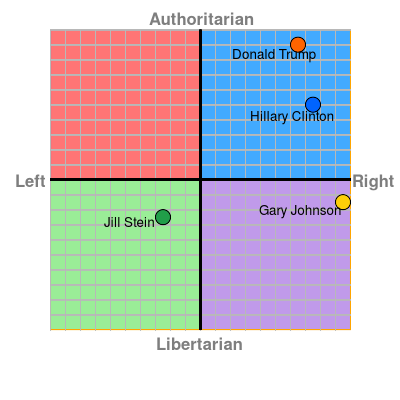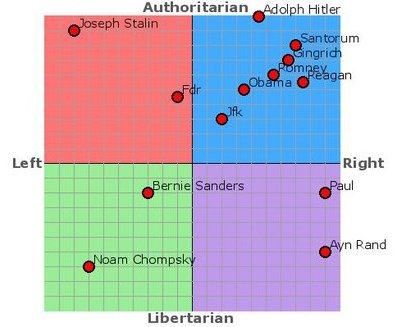I missed getting around to this earlier but this came in from Pleiades about how the globalised super wealthy avoid paying tax. It's from behind the pay wall at the Australian Financial Review so I can't go and post the entire thing, but it is a really interesting read.
Gabriel Zucman, who teaches at the University of California at Berkeley, has two goals in his new book, The Hidden Wealth of Nations: to specify the costs of tax havens, and to figure out how to reduce those costs. While much of his analysis is technical, he writes with moral passion, even outrage; he sees tax havens as a "scourge". His figures are arresting. About 8 per cent of the world's wealth, or $7.6 trillion, is held in tax havens. In 2015, Switzerland alone held $2.3 trillion in foreign wealth. As a result of fraud from unreported foreign accounts, governments around the world lose about $200 billion in tax revenue each year. Most of this amount comes from the evasion of taxes on investment income, but a significant chunk comes from fraud on inheritances. In the United States, the annual tax loss is $35 billion; in Europe, it is $78 billion. In African nations, it is $14 billion.
The fractions of wealth held abroad are highly variable. In Europe, it is about 10 per cent. In African and Latin countries, it is much higher, between 20 per cent and 30 percent. In Russia, it is a whopping 52 percent. It follows that while tax havens hit wealthy nations hardest in absolute terms, they can have especially destructive effects on poorer or developing countries, because such a high percentage of their money is offshore. Zucman does not explain why this is so, but it is possible to speculate that one reason is rampant corruption within both the public and private sectors. The extraordinarily high figure for Russia might be best understood as involving money corruptly acquired or invested, which suggests an important point: All uses of tax havens are not the same. Sometimes government officials are the ones who are evading taxes, and they do not want to stop that evasion.
In the aftermath of the financial crisis, you might expect that there would be an international crackdown on the use of tax havens, and, as we shall see, international attention is indeed growing. But the numbers demonstrate that no crackdown has occurred. In Luxembourg, offshore wealth actually increased from 2008 to 2012 (by 20 per cent). In Switzerland, the increase has been comparable; foreign holdings are now close to an all-time high. Disturbingly, the new wealth is coming mostly from developing countries, which poses a serious problem in light of the severe strains on their limited budgets.
Zucman is the first economist to produce specific numbers of this kind, and, to do so, he had to undertake some creative detective work. In order to identify hidden wealth, he focuses on "anomalies" – situations in which international balance sheets show, in aggregate, more liabilities than assets. To see the importance of that inquiry, Zucman asks readers to imagine that a citizen of the United Kingdom holds an American security – say, stock in Google – in a bank account in Switzerland. In the United States, statisticians estimating U.S. wealth overall will record a liability, because a foreigner owns U.S. equities. But in Switzerland, statisticians will see nothing, and for a good reason: Google stock held in Switzerland by a U.K. resident will be, for Switzerland, neither an asset nor a liability. In the U.K. too, nothing will be registered, but for a bad reason: The UK has no way of knowing that one of its citizens owns Google stock in Switzerland. From this example, we can see the anomaly: On the global level, liabilities will be recorded as exceeding assets.
Zucman puts it this way: "As far back as statistics go, there is a 'hole'; if we look at the world balance sheet, more financial assets are recorded as liabilities than as assets, as if planet Earth were in part held by Mars." For the purpose of producing an accounting of hidden wealth, that is actually helpful, because "money doesn't evaporate randomly into the ether, but instead follows a precise pattern of tax evasion". In 2015, for example, the nations of the world reported $2 trillion as mutual fund holdings in Luxembourg; this is the total of recorded liabilities. But Luxembourg's own statisticians calculated that worldwide, $3.5 trillion in mutual fund holdings were kept in Luxembourg; that is the total of recorded assets. What happened to the missing $1.5 trillion? In global statistics, that amount had no owners. For Zucman's purposes, the anomaly is a revealing one: The amount by which assets exceed liabilities is a measure of wealth hidden in offshore accounts
That is a lot of money leaking out of the system, avoiding tax. The article goes on to discuss how these rich people might get taxed, but the overarching information is just how much money escapes taxation.
It's galling to think that the government of the wealthy by the wealthy for the wealthy - a.k.a.the Coalition government, wants to re-jig taxation in a way that increases the tax burden on the poor while giving more tax breaks to the rich.
A Different View On The Property Bubble
It would be unfair of me if I didn't put up an article arguing against the Property Bubble being an immediate problem. Here it is in a nutshell:
Now here's the thing: none of those charts address the fact that Australia's got the highest private sector debt per capita in the world. Just because on average we're managing this debt and not falling into arrears does not mean there isn't a whole bunch of debt money loaded into the system. As with all dynamic systems, the apparent equilibrium being maintained for now does not indicate the equilibrium is going to hold indefinitely into the future. It's hard to imagine what is going to rock the boat, but should something come along that rocks this boat, it is going to be very susceptible to capsizing.
But then one imagines the government will bail out the banks in order bail out the Mum & Dad investors who put their investment money into housing.
Gerry Harvey Thought It Was Nuts Too
More on the Dick Smith stores closing... Gerry Harvey also thought the AnchorageCapital's float of Dick Smith in 2013 was a bit of a joke.
A Different View On The Property Bubble
It would be unfair of me if I didn't put up an article arguing against the Property Bubble being an immediate problem. Here it is in a nutshell:
But the report also caused howls of outrage from local experts, who variously described Tepper's claims as "fanciful" (Australian Bankers' Association CEO Steven Munchenberg) and "as insightful as another work of fiction, Hunter S. Thompson's Fear and Loathing in Las Vegas" (Mortgage Choice chief executive John Flavell). Sure, there may be some vested interests there, but economists point out several reasons why they think Tepper's claims are over the top. The main one is that for a slide of that magnitude to occur, Australia would need to experience a sharp downturn in the economy, causing a spike in unemployment. That's currently not expected. But there are other signs the housing market isn't about to hit reverse, for example credit growth - seen as a key ingredient of a bubble. While housing credit has picked up, it is still a long way from previous highs.Hmmm. If you go to the linked article, you'll find that average home loan payments look manageable; mortgage buffers are up; Credit growth is not extreme; mortgage arrears are low; Low-Doc loans have fallen by proportion; and the Sydney marketing particular was merely playing catch up.
Now here's the thing: none of those charts address the fact that Australia's got the highest private sector debt per capita in the world. Just because on average we're managing this debt and not falling into arrears does not mean there isn't a whole bunch of debt money loaded into the system. As with all dynamic systems, the apparent equilibrium being maintained for now does not indicate the equilibrium is going to hold indefinitely into the future. It's hard to imagine what is going to rock the boat, but should something come along that rocks this boat, it is going to be very susceptible to capsizing.
But then one imagines the government will bail out the banks in order bail out the Mum & Dad investors who put their investment money into housing.
Gerry Harvey Thought It Was Nuts Too
More on the Dick Smith stores closing... Gerry Harvey also thought the AnchorageCapital's float of Dick Smith in 2013 was a bit of a joke.
Retail billionaire Gerry Harvey said he thought the "world had gone mad" when investors paid up in the $520 million float of the now-defunct Dick Smith business.
Dick Smith's receiver, Ferrier Hodgson, announced on Thursday that it was closing the electronics retailer's doors, putting about 3000 staff out of work.
Mr Harvey said Dick Smith's profits evaporated years ago, prompting then-owner Woolworths to sell the business on the cheap to private equity firm Anchorage Capital in 2012.
"Then five minutes later this bloke [Anchorage Capital] dresses it up and sells it for $500 million [in 2013], and I'm looking at this and saying 'I don't believe this, this business is stuffed'... I'm thinking I wouldn't buy these shares for 10¢, let alone $2," he said.You would, wouldn't you?
"I'm looking at all this and thinking to myself: the world has gone mad."





